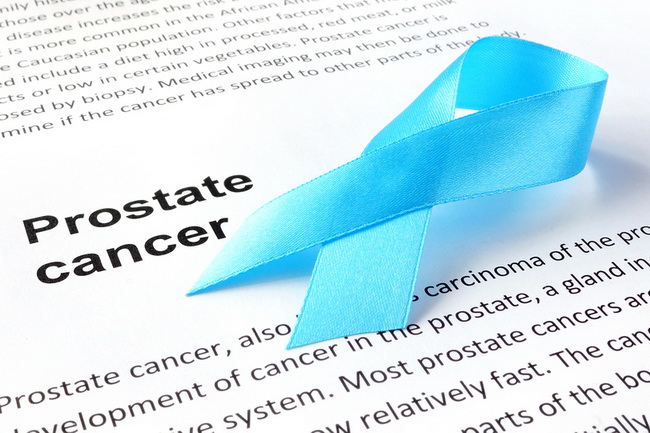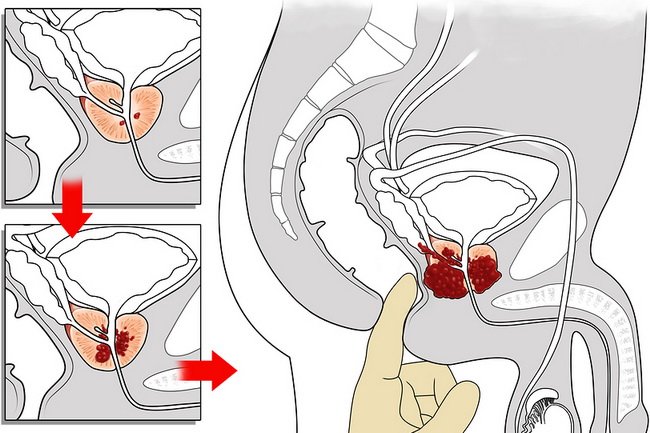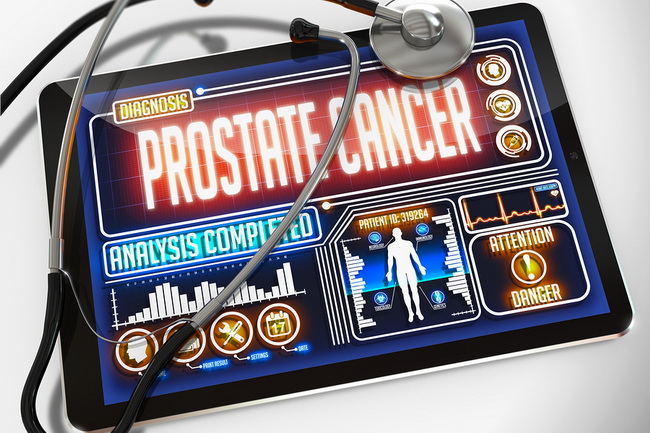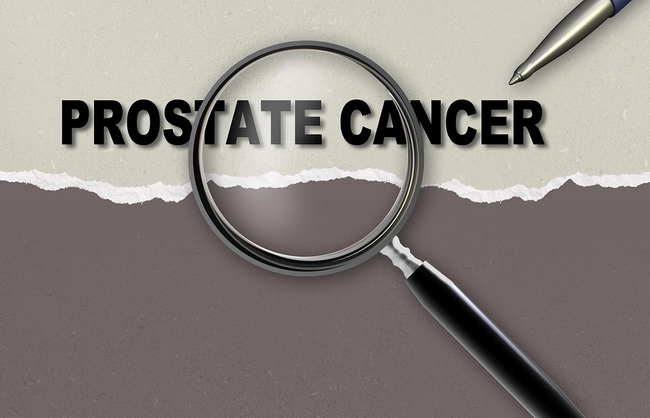- Make It Yourself Lavender Heart-Shaped Bath Bombs!
- 20 Things You Never Knew About “Down There”
- 12 Best Foods For Those Suffering From Arthritis Pain
- 12 Personal Hygiene Mistakes Almost Everyone Makes (Mom Never Told You About #4!)
- 15 Medicinal Plants And Herbs From The Cherokee People
- 12 Mind-Blowing Benefits Of Drinking Coconut Water During Pregnancy
- 12 Outstanding Winter Foods That Won’t Fatten You Up Like A Christmas Turkey
The Deadly Cancer No One Talks About

Photo credit: bigstock.com
Almost everyone in America knows about breast cancer. In fact, we have the entire month of October dedicated to it. We have walks and runs for breast cancer and lung cancer. Since the death of Patrick Swayze, we talk about pancreatic cancer and because of Lance Armstrong, we talk about testicular cancer. But when was the last time you heard anyone talk about prostate cancer?
For some reason, this type of cancer gets very little attention, even though it’s the #2 killer for men and the #1 killer for men over 75. Perhaps because this type of cancer generally hits later in life, we simply think of it as an “old man’s” disease and not something we should be concerned with. However, did you know that this disease generally starts when a man is in his 40’s? They might not have any symptoms or even be aware of the problem until they are in their late 60’s, but if more men were to take steps to prevent or become aware of this cancer, they might live well past the age of 75.
Ladies, this doesn’t mean this article is not for you. Since women are generally the caretakers of the family, you should be aware of the symptoms of prostate cancer, so if your man doesn’t notice, or brushes it off, you should be the one to talk to him about it and convince him to see a doctor as soon as possible.
Continue to Page 2

Photo credit: bigstock.com
What is Prostate Cancer?
The prostate is a small gland found in the reproductive system of almost all male mammals. The prostate provides fluid for sperm to travel in.
Although there are several different types of cancer that can occur in the prostate, and they all develop a bit differently, the one attribute that they all share is that in the overwhelming majority of cases, prostate cancers develop slowly and they take a very long time to spread to other parts of the body, although that does happen. There is a form of prostate cancer that spreads more quickly and therefore can spread more easily to other parts of the body, but this form of prostate cancer is rare.
YOU MIGHT LIKE: Top 12 Foods for Men’s Sexual Health
Some men have prostate cancer for years and aren’t even aware of it and die later of other causes. However, since this cancer is the number one killer of men over the age of 75, it is definitely a cause for concern, especially since it grows so slowly. This means men have plenty of time to monitor its progress (in combination with a doctors help, of course) and take steps towards creating a healthier environment for their prostate.
Continue to Page 3

Photo credit: bigstock.com
What Are the Risk Factors?
There are 4 major risk factors that greatly increase a man’s risk of developing this type of cancer.
- Obesity – Studies show that the higher the body mass index, the greater the risk of developing cancer. Doctors will also tell you that it’s much more difficult to diagnose and treat prostate cancer in men who are obese.
- Age – This is perhaps the biggest risk factor for men, which is why many doctors suggest that you begin testing for this disease in your 40’s. Although it is rare to develop this cancer under 50, it does happen. Most cases are diagnosed between the ages of 60 and 70, but it can develop before then.
- Race – Black males develop this cancer more often than any other race. Asian men have the lowest rates of prostate cancer, while whites and Hispanics fall somewhere in the middle.
- Genetics – Statistics show that if your father or grandfather had prostate cancer then your risk is 3 time greater. If your family member was diagnosed before the age of 60, then your risk is even higher. As the number of relatives, especially those who are in your first degree lineage, who developed prostate cancer increases, then your risk also increases accordingly as the odds that there is a faulty gene causing this cancer become greater. This means that if your grandfather, great uncles, father, and or uncles developed this cancer, your chances are much greater and you should begin testing early.
Continue to Page 4

Photo credit: bigstock.com
Symptoms of Prostate Cancer
As we mentioned, most men who develop cancer of the prostate show few, if any, symptoms for years as it progresses quiet slowly. However, like most cancers, the earlier you find it, the easier it is to treat. As this cancer progresses, you will often find one or more of the following symptoms:
- Urinary Problems – Generally, most men complain about a difficulty with urination. They find that they have an urge to go, but can’t, or they find that the stream is not as strong as it used to be. Some men find they must “force” themselves to urinate or that urination is painful. Sometimes there is blood in the urine. Other men find the opposite; they experience incontinence.
- Pain or Discomfort – Pain in the lower half of the body is common, most often occurring the legs, hips, or lower back. Many men experience a type of discomfort in the pelvis area when sitting in certain positions or when sitting for prolonged periods of time. Other men state they just have a general feeling of pain or discomfort in the lower part of the body in general but they can’t determine an exact location. This is due to the enlargement of the prostate.
- Erectile Dysfunction – Although this sometimes has to do with other issues, many times erectile dysfunction, the inability to get an erection or maintain an erection long enough to have sex is often a sign of an enlarged prostate or prostate cancer.
- Semen – Sometimes the semen has a strange appearance, usually a strange color, most likely resulting from blood.
Although 2/3rd’s of men say that they had no warnings signs at all, one third of them had at least one or more of the above symptoms.
Continue to Page 5

Photo credit: bigstock.com
What Causes Prostate Cancer?
No one is quite sure what the direct cause of prostate cancer is. However, it is interesting to note that those who eat a healthy diet with plenty of raw fruits and vegetables, fish, and very little red meat have lower rates than those who eat the typical Western diet. Also, studies show that those who ejaculate more frequently have a lower rate of developing this cancer than men who are more celibate. This is a good excuse to have sex more often!
It’s also good to note that an enlarged prostate is not necessarily a sure sign of cancer. Some men experience something called hyperplasia, which is a common and less dangerous problem with prostate than cancer.
SEE ALSO: Vitamin D Deficiency Linked to Aggressive Prostate Cancer
You should have your doctor test you every few years for PSA, which is prostate specific antigen, easily found through a blood test. A PSA blood test will look for a specific protein produced by the prostate that tends to be higher when cancer is forming.
If your PSA count is higher than normal your doctor will probably want to do a biopsy to determine if your prostate has developed cancer.
Be sure to read our article “Top 12 Herbs that Keep Your Prostate Healthy and Fight Cancer” so you can take steps to keep your prostate as healthy as possible.
References:
































